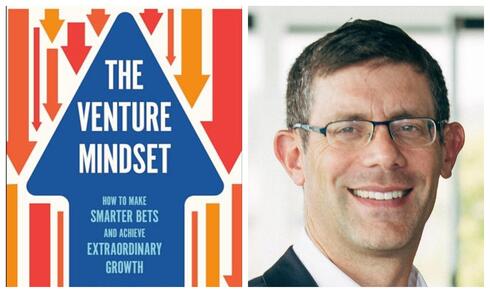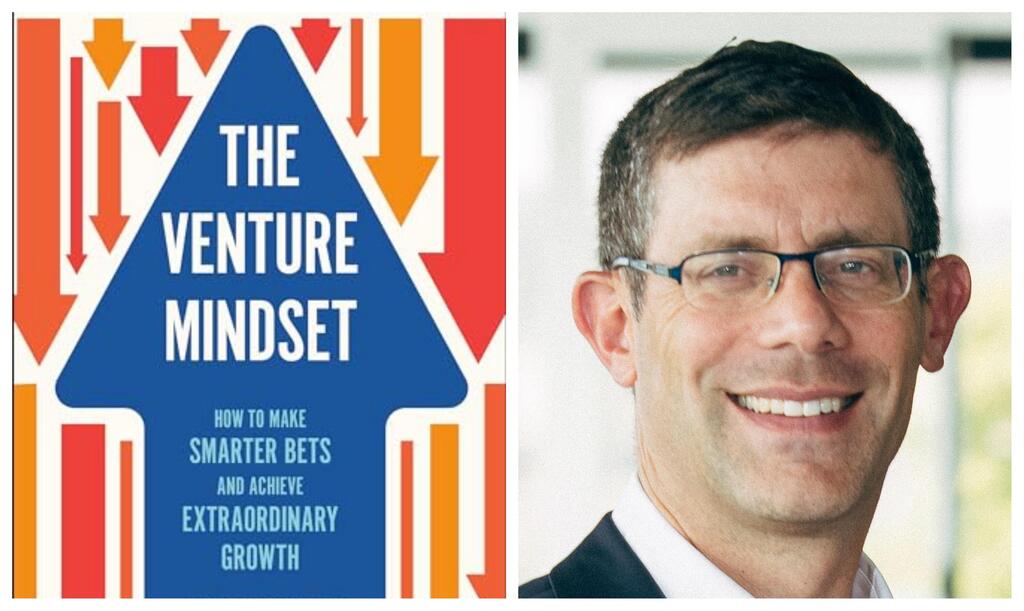
BiblioTech
CTech’s Book Review: How to understand the mindset of investors
Ben Wiener, Managing Partner at Jumpspeed Ventures, has joined CTech to share a review of “The Venture Mindset: How to Make Smarter Bets and Achieve Extraordinary Growth” by Ilya Strebulaev and Alex Dang.
Ben Wiener is the Managing Partner at Jumpspeed Ventures, a VC fund dedicated to investing in early-stage startups that originate within the Jerusalem startup ecosystem. He has joined CTech to share a review of “The Venture Mindset: How to Make Smarter Bets and Achieve Extraordinary Growth” by Ilya Strebulaev and Alex Dang.
Title: The Venture Mindset: How to Make Smarter Bets and Achieve Extraordinary Growth
Author: Ilya Strebulaev and Alex Dang
Format: Book
Where: Other
Summary:
In ‘The Venture Mindset’, Strebulaev, the founder of the Venture Capital Initiative and a Professor of Private Equity and Finance at Stanford University’s Graduate School of Business, and Deng, a tech executive and a former McKinsey partner, share decades of experience in studying venture capitalists’ processes and decision-making. The Venture Mindset attempts to identify and then promote the normative venture capitalist’s approach to risk-based strategic decision-making, as an alternative to conservative, cautionary business management. In so doing, it also serves as a fantastic guidebook for both venture investors interested in self-assessment, and founders seeking to understand how a typical venture investor might evaluate their startup.
Important themes:
The authors focus much of their efforts on analyzing and explaining how venture capital investors source, evaluate, and select investments. In this way, the book, in my view, is kind of a mirror to Peter Thiel’s iconic ‘Zero to One’, which speaks to prospective founders and teaches them how to “ideate” and identify a worthwhile venture; ‘The Venture Mindset’ puts the reader in investors’ shoes and attempts to show how funders determine which ventures are investable.
The authors’ primary goal is to promote a venture capitalist mindset throughout the broader business management culture. As one might imagine, such a mindset entails taking more risk, questioning the status quo, and constantly seeking new areas of activity or growth. But the authors do a good job of drilling deeper into the mind of the typical venture investor, presenting a thorough profile of venture capitalist behavior as anything but free-wheeling, shoot-for-the-stars bet placement. The book holds up venture investing as a model of heuristic-based risk evaluation that focuses on identifying and filtering away unacceptable risks and pursuing calculated ones.
‘The Venture Mindset’ balances rigorous academic and McKinsey-style research and case studies, with easy-to-digest and straightforward strategic insight and guidance, producing an informative, thought-provoking, and actionable result.
What I’ve learned:
‘The Venture Mindset’ covers many topics and is worth reading in full. Below are just a few of the insights that jumped out to me while reading the book.
- The “red flag” mindset: Typical venture investors evaluate many opportunities in order to find one worthy of investment. The authors confirm the proverbial “100:10:1” ratio — For every one hundred startups seen, ten are evaluated closely, and one receives investment. Driving this evaluative or filtering process is what the authors call a “red flag” mindset; investors engage in heuristic-based pattern matching. The authors refer to venture investors as “risk reduction engineers.” Knowing that they will need to see one hundred opportunities to locate one investment, investors seek to identify “red flags” in a pitch that match recognizable patterns of startup failure and use those negative indicators to move on as quickly as possible to other opportunities. In my view, many founders are not aware that this is happening in the investor’s mind as they pitch from across the table. Contemplating the elements that an investor might be most concerned about, and addressing those directly in the pitch, can often serve a founder well.
- Another topic worth noting is the authors’ position (or lack thereof) on a classic debate in venture capital: is the team most important, or the market? In his famous 2007 essay ‘The Only Thing That Matters’, Marc Andreessen came out clearly as the leader of the “Market” camp, citing legendary investor Andy Rachleff’s ‘Law of Startup Success’ which pronounces “market wins.” ‘The Venture Mindset’ claims 47% of venture capitalists say “Team” is most important in their analysis. Yet later on, the authors quote Rachleff’s ‘Law of Startup Success’. Rather than a contradiction, I think this shows that the debate is ongoing. Even if generally, there is a “venture mindset,” individual investors are like snowflakes, and will apply the mindset differently.
Who should read this book:
The book often addresses “traditional” business leaders, encouraging them to discard old ways of evaluating commercial opportunities and adopt a “venture mindset.” However, I believe ‘The Venture Mindset’ should be read by startup founders for valuable insight into the mental processes of many of the investors they will encounter. Venture capitalists can also use the book as a self-check of their processes, and should read it carefully to determine whether they subscribe to or disagree with each of the normative VC behaviors described in the book.
Watch a recorded episode of CTech's BiblioTech series below:















